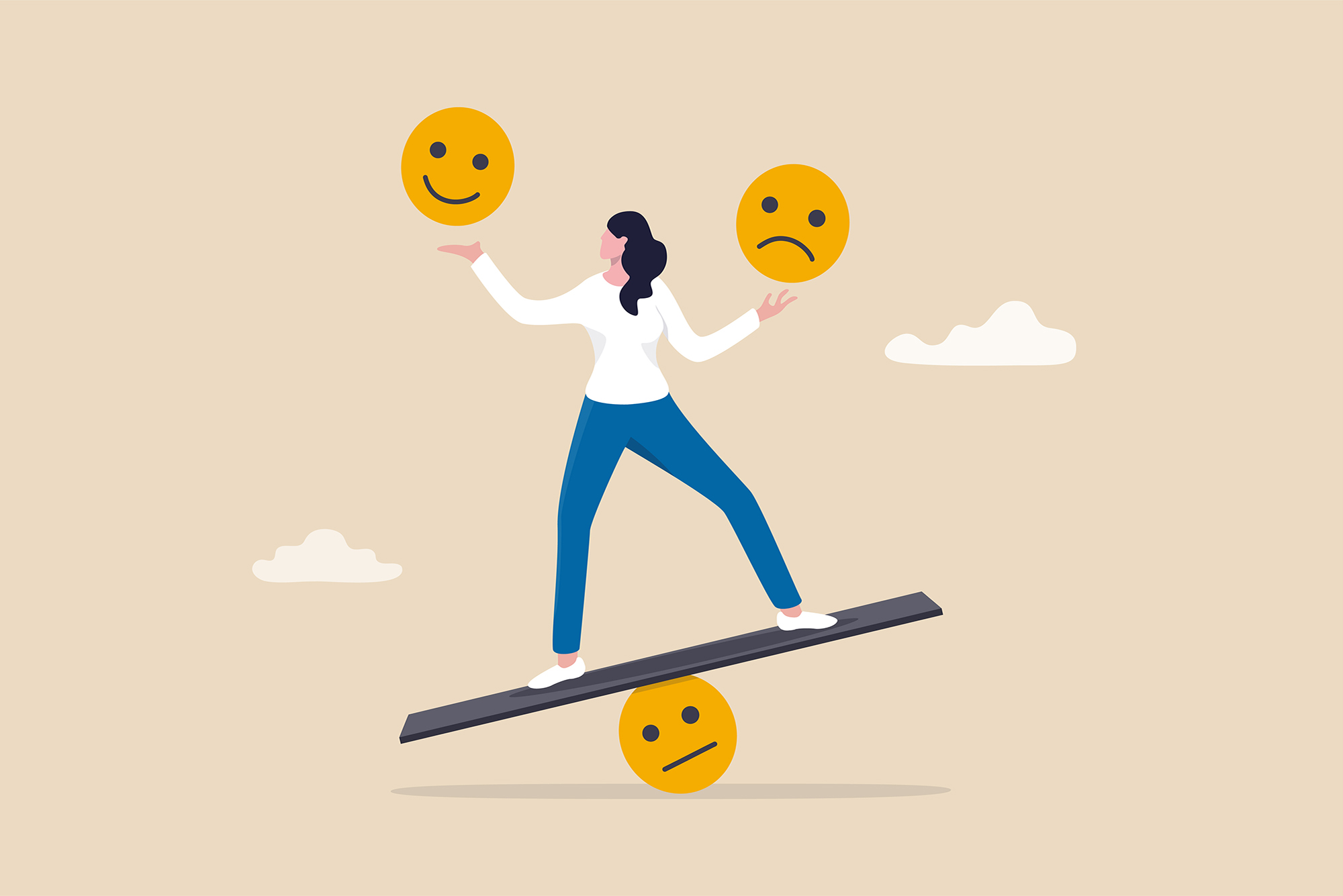BU Is Offering Free Screenings for Depression and Anxiety October 6
Quick and confidential, they’re open to students, faculty, and staff for National Depression Screening Day

Think you might be depressed or anxious? BU is offering free confidential screenings on both the Charles River Campus and Medical Campus this Thursday, October 6. Illustration by Nuthawut Somsuk/iStock
BU Is Offering Free Screenings for Depression and Anxiety October 6
Quick and confidential, they’re open to students, faculty, and staff for National Depression Screening Day
October 6 is National Depression Screening Day. To mark the day, Boston University students, staff, and faculty can access free screenings for anxiety and depression, courtesy of Student Health Services (SHS), Employee Wellness, and volunteers from across the Charles River and Medical campuses.
Last year’s screenings drew around 200 participants. This year, the in-person screenings will be held at two locations: on the Charles River Campus, they’ll be on the GSU Plaza from 11 am to 2 pm, and on the Medical Campus, on the Talbot Green from noon to 2 pm. No appointment is needed to participate. (Health insurance is not required, either.) Student Health Services and Employee Wellness will also email links to online screenings for anyone who cannot make it in person.
The screenings take only about two minutes to complete. Once you get your results, you’ll be able to speak to a volunteer who can direct you to mental health resources available at BU and beyond. (Students: check out this guide to all the mental health resources on campus.) Participants can also build free self-care kits with informational brochures and stress-relieving items such as tea, sleep masks, and stress balls.
Paying attention to your mental health is just as crucial as your physical health, says Melissa Paz, SHS Health Promotion & Prevention assistant director of mental health promotion.
“It’s often said that a mental health screen is like a checkup from the neck up,” Paz says. “I liken it to a temperature check, to see how we’re doing internally. Many of us lead busy lives, and it can be tough to find time to pause and take stock of how we’re really doing.
“These two-minute screens will allow the entire BU community to see where they are at, as well as provide the community with resources on how to seek care and support through educational materials and empathetic conversations.”
That’s the real benefit of the event, says SHS student health ambassador Bella Faber-Rico (CAS’23). For those who might already know they’re struggling with mental health, the chance to connect with mental health clinicians and staffers is critical.
“It’s accessing mental health help that can be the most confusing—who to call and how to set up an appointment and things like that,” Faber-Rico says. “People usually have a lot of questions about that. This event is about providing greater visibility and transparency—like, if you want to access the resources available to you, here’s how you do that.”
The screenings aim to normalize asking for help, Paz says, particularly at a time when rates of depression have skyrocketed among American adults. “Amidst the variety of stressors that impact us on a personal and global level, from academic stress to the ongoing pandemic, it’s that much more important to care for our mental health,” she says. “Meeting our health-related needs helps us to better cope with these stressors. We may not always have full control over the ups and downs, but there are ways to continue taking steps forward that keep our health at the forefront.
“This is one step in that direction.”
And coming later this year, SHS student health ambassadors are launching a peer-listening program, where students can schedule one-on-one listening sessions with fellow students. BU Today will keep you posted when that program launches.
Find more information about the October 6 anxiety and depression screenings here. Can’t make it in person? Access anonymous online screenings here.
Comments & Discussion
Boston University moderates comments to facilitate an informed, substantive, civil conversation. Abusive, profane, self-promotional, misleading, incoherent or off-topic comments will be rejected. Moderators are staffed during regular business hours (EST) and can only accept comments written in English. Statistics or facts must include a citation or a link to the citation.